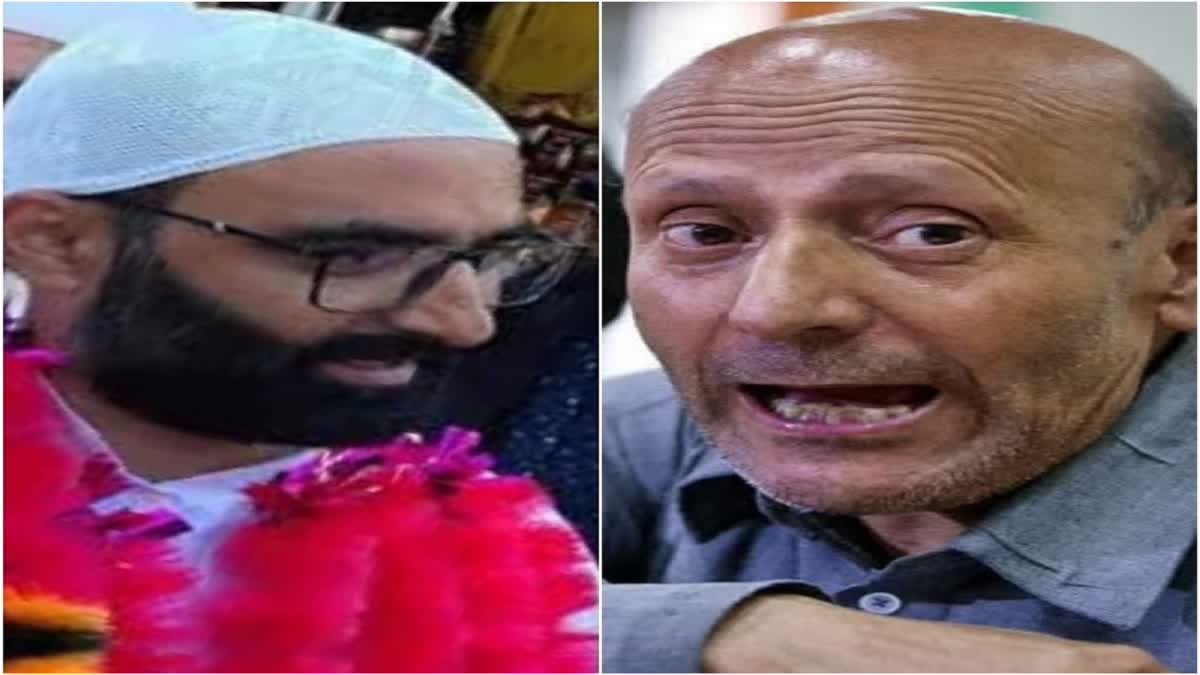Srinagar: Independent candidates backed by the Jamaat-e-Islami (JeI) and Baramulla MP Engineer Rashid's Awami Ittehad Party (AIP) were unable to make a significant mark in the Jammu and Kashmir assembly elections, putting their political futures at risk.
The votes for the 90-member assembly were counted at 28 locations across Jammu and Kashmir, with the National Conference and its coalition partner Congress sweeping the polls. The political formation combined crossed 46 magic numbers required for the government formation.
However, the defeat of independent candidates is a major setback for AIP and Jamaat supporters. None of Jamaat's 10 candidates won a single seat, suggesting that party politics has little support at the grassroots; otherwise, the group quit boycotting the election and participated in it after three decades.
Barring a seat in Kulgam, where Sayar Reshi emerged as a runner-up against the winning candidate and communist leader MY Tarigami, who retained the seat for the fourth time since 1996.
The Jamaat, which is considered the alleged fountainhead of militant outfit Hizbul Mujahideen, was banned in 2019. It did, however, run independent candidates in ten constituencies. Their political opponents questioned the move in light of the ban, citing the Jamaat's membership in the separatist Hurriyat Conference, which has boycotted the election since 1987.
Similarly, its alliance partner AIP, which had 34 nominees across the 90-member legislative assembly seats for which elections are held after a hiatus of 10 long years, secured only one seat. The yet-to-be-registered party with the Election Commission of India bagged their home bastion, Langate, where Engineer Rashid's brother Khurshid Ahmad Sheikh was declared the winner. He recently put in papers from the government job and contested his maiden election from the seat retained by his brother twice since 2008.
The AIP was encouraged to field candidates when its supremo Engineer Rashid, won the Lok Sabha election in the Baramulla constituency, upsetting two political heavyweights, Omar and Peoples Conference Chairman Sajad Lone. This time, the two candidates who were running for assembly seats were successful.
The surge of 346 independents, accounting for 40 per cent of the total 873 candidates, was met with suspicion, with two former chief ministers, Omar and PDP president Mehbooba Mufti, claiming that their foray into electoral politics was intended to split the vote in Kashmir.
It was not the first time in the last two decades to see a high number of independents running for the election. Following the mass protests over the land distribution to Amarnath Shrine Board in 2008 that saw over 100 deaths, the subsequent election saw 468 candidates contesting as independents.
Similarly, the previous election in 2014 drew 274 independent candidates, with only three, including Rashid, winning the elections. Of them, a total of 267 saw their deposits being forfeited, drawing an overall 6.8 per cent vote share across Jammu and Kashmir. Now this time too, that performance is mimicked with many losing their security deposits.
In Srinagar’s Habbakadal constituency, for example, an independent candidate could draw only 58 votes, reflecting their unpopularity.
"People betrayed me despite working for them," says an independent candidate from Eidgah who got below 500 votes. "Now I will have to see what to do in the future.”
Read More



